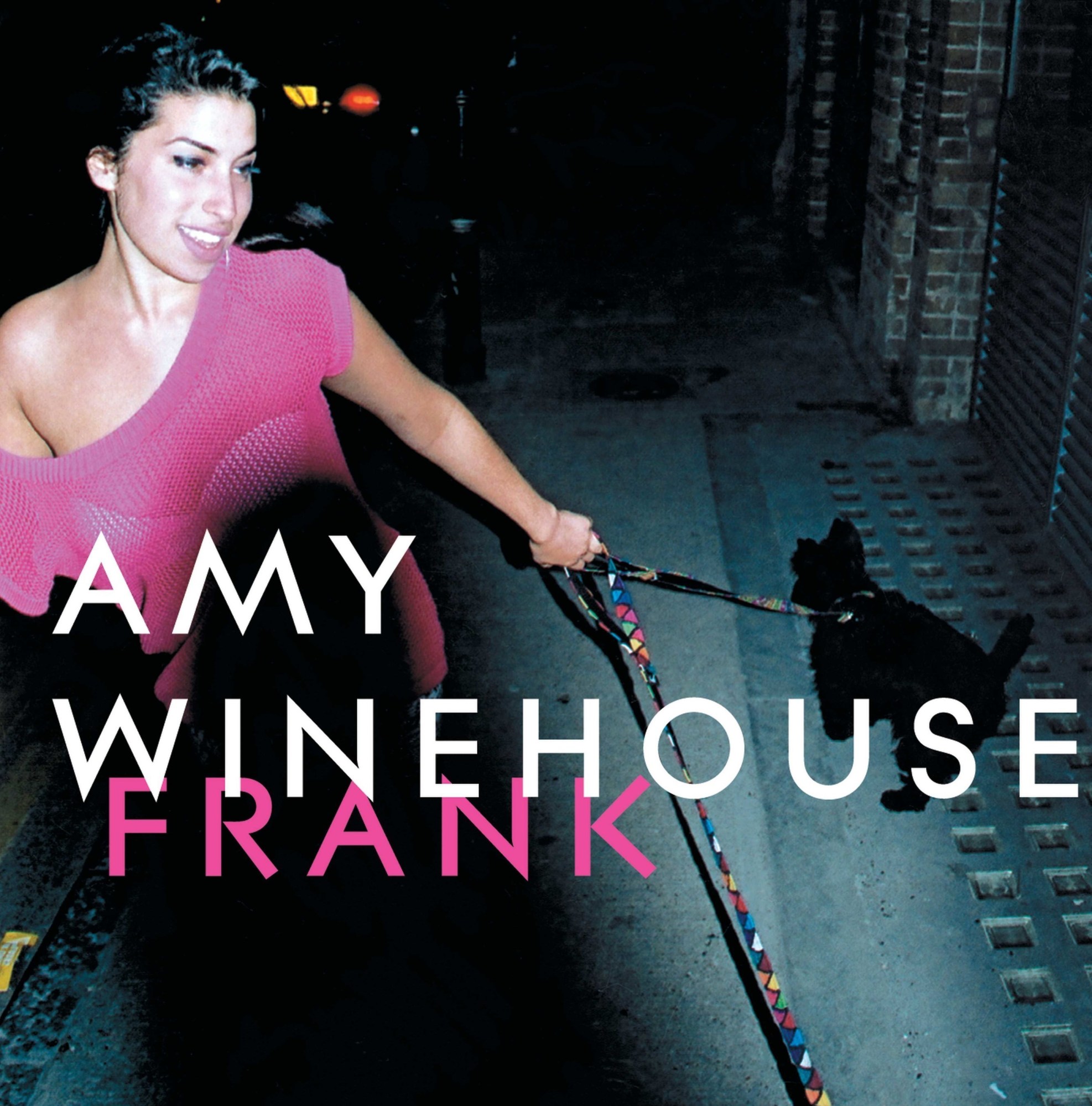Seven years after her tragically young death aged just 27, Amy Winehouse’s legend live’s on. This month, her family have announced an inevitable biopic and a questionable tour: a hologram of the late singer will be backed by a live band, reducing her to a spectral presence at the heart of a show that’s supposed to celebrate her life and music. It’s hard not to wonder, what would Winehouse herself make of it all?
Surely a better way to remember her brilliance is by revisiting her debut album Frank, which turns 15 years old this week. The album was well received at the time, but though she would win a prestigious Ivor Novello songwriting award for lead single Stronger Than Me, Winehouse wasn’t entirely happy with it. “Some things on this album make me go to a little place that’s fucking bitter,” she told The Observer in February 2004, just three months after it dropped. “I’ve never heard the album from start to finish. I don’t have it in my house. Well, the marketing was fucked, the promotion was terrible. Everything was a shambles.”
Though Frank isn’t as flawless as Winehouse’s follow-up album, 2006’s era-defining Back to Black, it’s definitely better than her 2004 comments suggest. Sure, its significance is enhanced because it’s one of just two studio albums she got to make (2011’s Lioness: Hidden Treasures was a posthumous hodgepodge of previously unreleased material). But at the same time, Frank isn’t just a footnote. Featuring songs written when Winehouse was still a teenager, it offers thrilling glimpses of a unique and precocious musical talent. It’s also an introduction to an icon who inspired everyone from Adele to Halsey, and Lady Gaga to Lana Del Rey.
Charles Moriarty, who photographed Winehouse for the album’s cover, said recently that she conceived Frank as a “straight jazz-hip-hop cross”. You can hear this musical fusion in highlights like Stronger Than Me, Fuck Me Pumps and October Song, where Winehouse’s languid, jazzy melodies meet bold, bolshy beats. It’s a combo that reflects not just Winehouse’s taste in music — the album’s title nods to Frank Sinatra, and she sulked about missing a Slick Rick gig on Back to Black — but her personality, too: Winehouse was as romantic as a jazz balladeer, but kept it real. When Simon Amstell suggested on Never Mind the Buzzcocks that she might want to “do something with Katie Melua”, Winehouse replied: “I’d rather have cat AIDS, thank you.”
Winehouse’s cutting tongue is stunningly effective on Frank‘s saltiest track, Fuck Me Pumps, a savage character study that now feels like a trip back in time to the Footballer’s Wives era of the early noughties. “Don’t be mad at me, ’cause you’re pushing 30, and your old tricks no longer work,” Winehouse sings on the final verse. It’s unsisterly, but not quite cruel, because Winehouse has already revealed a begrudging admiration for the wannabe WAG at the song’s centre: “Without girls like you there’d be no fun, we’d go to the club and not see anyone.”
Besides, she can be just as brutal about herself. On I Heard Love Is Blind, she admits to cheating on her partner because she could. “Baby, you weren’t there,” she shrugs. “And I was thinking of you when I came.” Fifteen years later, the straight-up and shame-free way Winehouse writes about sexual desire still feels exciting, whether she’s lusting over a co-worker on Amy Amy Amy, or hooking up with an ex on In My Bed. “She is a massive inspiration to me,” Halsey told Teen Vogue in 2015. “She was strong but she was open about her sexuality and her life — I love her intentions, and I want to further her message but in my own way.”
Not everything on Frank still sounds quite so forward-thinking. Stronger Than Me is a brilliantly-written song about wanting your partner to toughen up, but some of its lines don’t fly in 2018, now we’re not so into reinforcing gender stereotypes. “Always have to comfort you every day,” she sings. “But that’s what I need you to do, are you gay?” Similarly, her use of the phrase “lady boy” in the chorus is dated at best.
Musically, Winehouse was always a compelling contradiction: a young woman with an old-sounding voice who made music steeped in the past, but rooted in the present. When Frank was finally released in the US in 2007, after Back to Black had made her a global star, a Pitchfork review eerily predicted that “it comes off as the first chapter in the Romantic myth of the poet who feels too deeply and ends up killing herself for her audience’s entertainment”. The reviewer also accused her of imitating her favourite jazz vocalists “much too closely”. Certainly, Frank‘s mid-album jazz covers, Moody’s Mood for Love and (There Is) No Greater Love, feel like an unnecessary bridge to the past. We can hear in Winehouse’s voice that she adores jazz music and feels it deeply; she doesn’t need to spell it out for us.
But Frank‘s faults never threaten to spoil it as a body of work. This album merges old and new less seamlessly than Back to Black, and Winehouse probably didn’t need as many co-writers as her label gave her, but her preternatural talent shines through. Just listen to Take the Box , a devastating ballad about returning to an ex’s flat to pack up your possessions. “The Moschino bra you bought me last Christmas,” she sings longingly, before backing vocalists urge her to “put it in the box, put it in the box”. Thanks to her incredibly vivid songwriting, we can picture exactly what she’s doing — we’re in the moment with her. And thanks to her incredible voice, we can feel every ounce of her sadness. On Frank, Amy Winehouse is already an artist like no other.
